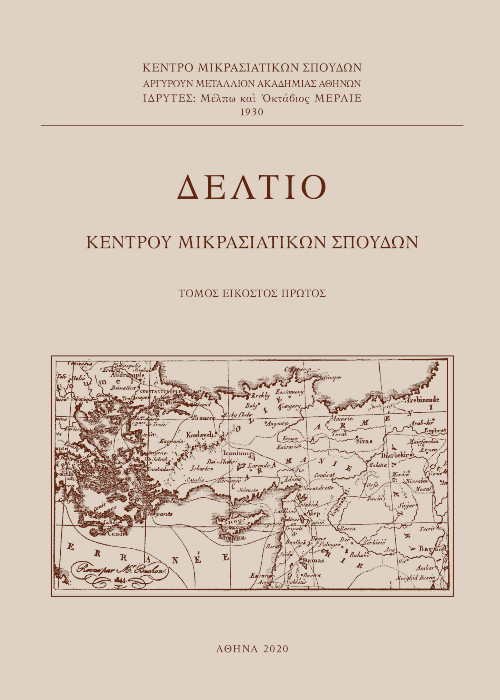Ideological consequences of social conflict in Smyrna: (1809-1810)
Abstract
One of the most articulate sources of social criticism of the Neohellenic
Enlightenment has been preserved in an Athonite manuscript and
although known to earlier researchers it has remained unpublished apparently
because of its radical anticlerical bent. The original stimulation
for the composition of the text was provided by the conservative reactions
which managed to temporarily close down the school of modern
learning (Philological Gymnasium) in Smyrna after its first year of operation
(1809 - 1810). The anonymous author gives many details about
the social conflicts in the city, talks about the persecution of the Enlightened
intelligentsia in Western Asia Minor by conservative clerical intellectuals
and broadens his attack against the exploitative social practices
and corruption that characterized the conduct of most hierarchs
of the Orthodox Church in the period just before the outbreak of the
Greek Revolution. This is a first attempt to make large sections of this
important source available to the study of Modern Greek thought. Those
parts of the text that present special theoretical or historical interest
are edited and published, followed by the detailed commentary and documentation
which is necessary to place the text in its relevant context.
Article Details
- How to Cite
-
Κιτρομηλίδης Π. Μ. (1982). Ideological consequences of social conflict in Smyrna: (1809-1810). Bulletin of the Centre for Asia Minor Studies, 3, 9–39. https://doi.org/10.12681/deltiokms.277
- Issue
- Vol. 3 (1982)
- Section
- Articles

This work is licensed under a Creative Commons Attribution-NonCommercial-ShareAlike 4.0 International License.
Authors who publish with this journal agree to the following terms:
- Authors retain copyright and grant the journal right of first publication with the work simultaneously licensed under a Creative Commons Attribution Non-Commercial License that allows others to share the work with an acknowledgement of the work's authorship and initial publication in this journal.
- Authors are able to enter into separate, additional contractual arrangements for the non-exclusive distribution of the journal's published version of the work (e.g. post it to an institutional repository or publish it in a book), with an acknowledgement of its initial publication in this journal.
- Authors are permitted and encouraged to post their work online (preferably in institutional repositories or on their website) prior to and during the submission process, as it can lead to productive exchanges, as well as earlier and greater citation of published work (See The Effect of Open Access).











